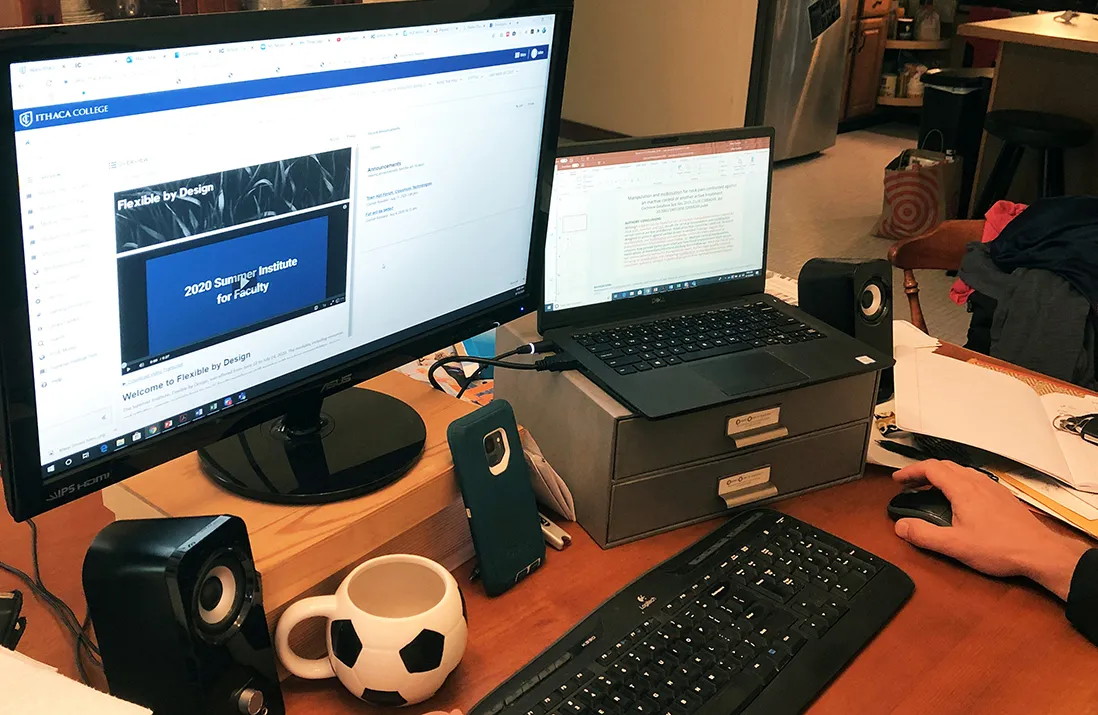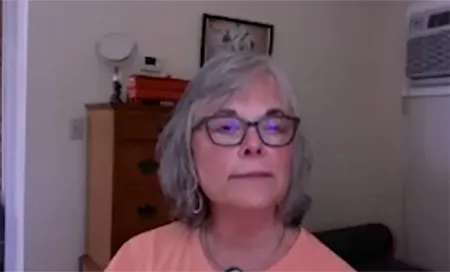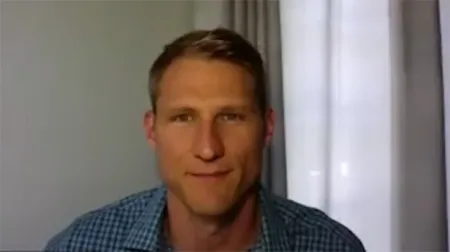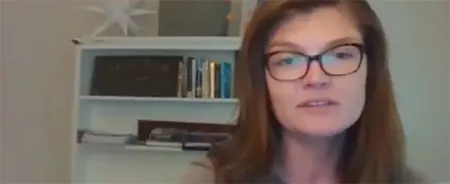As many Ithaca College courses will be taught online this fall, faculty are learning new and innovative ways to teach their courses. In preparation for the upcoming semester, faculty had the opportunity this summer to experience online learning themselves through the Summer Institute: Flexible by Design.
“This fall, it’s going to be much more flexible and much more intentionally designed,” said Gordon Rowland, director of the Center for Faculty Excellence, which offered the institute. “Students are going to experience something far better.”
The institute taught faculty members how to better use technological tools to create engaging synchronous class sessions, communicate more clearly and frequently with students, set up more effective online learning environments, create community in remote classes, and adjust the workload for remote learning, so students don’t get overwhelmed. All of the instruction was offered online, so faculty had the same user experience as students and could learn what works and what doesn’t work in that environment.



